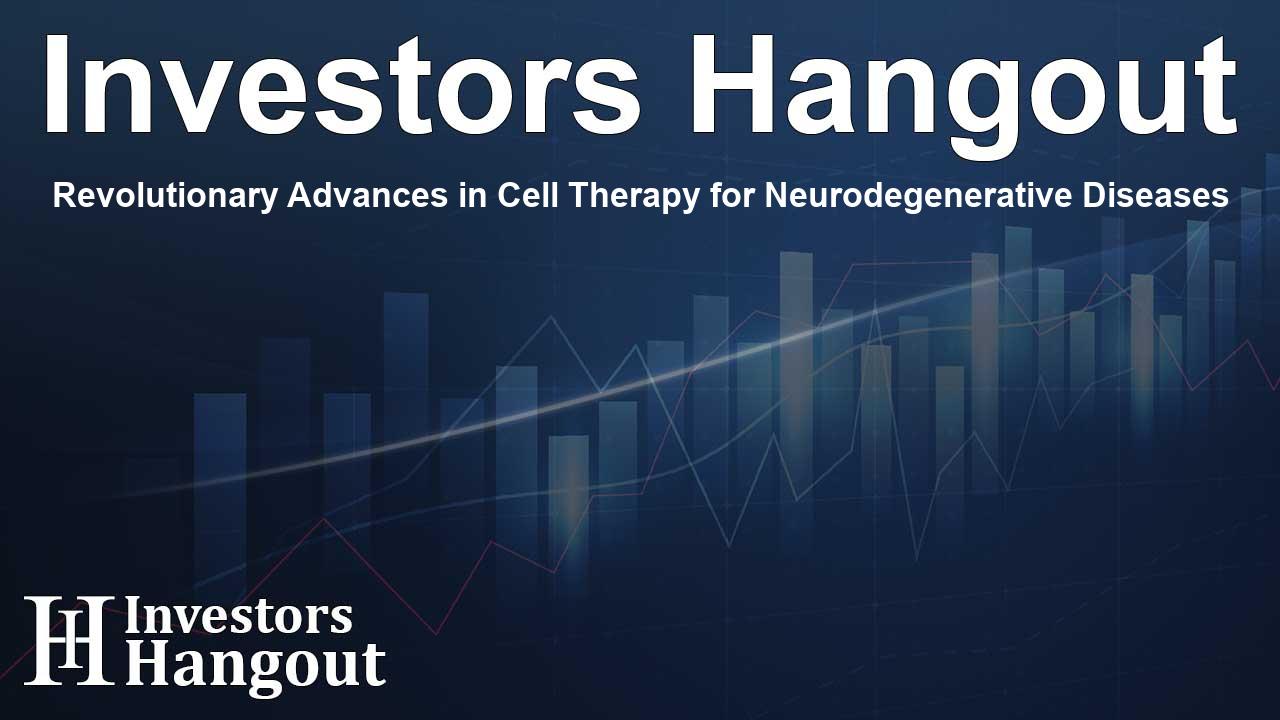Revolutionary Advances in Cell Therapy for Neurodegenerative Diseases

Revolutionary Advances in Cell Therapy for Neurodegenerative Diseases
The innovative research team, spearheaded by Dr. Yuejun Chen, founder of UniXell Biotech, has emerged with groundbreaking findings that could reshape the treatment landscape for Huntington's disease. In a recent article published in a prestigious journal, the team showcased the remarkable potential of cell therapy to address this debilitating condition, which has long posed serious challenges in the realm of neurodegenerative disorders.
Understanding Huntington's Disease
Huntington's disease (HD) is an autosomal dominant neurodegenerative disorder that significantly affects individuals, with estimates indicating a prevalence of about 5-10 cases per 100,000 people worldwide. The onset typically occurs in middle age, followed by relentless progression that impacts both motor and cognitive functions. At the core of this condition is the selective degeneration of medium spiny neurons (MSNs) within the striatum, leading to a host of symptoms including chorea, cognitive decline, and various neuropsychiatric manifestations.
Innovative Cell Therapy Approach
Driven by a desire to find effective treatments for HD, the UniXell research team invented a unique serum-free and xeno-free 3D suspension culture system, which they aptly named the "3D-default XFSC." This system allows for the efficient differentiation of human pluripotent stem cells into lateral ganglionic eminence (LGE) neural progenitor cells, aiming to create the specific neuronal cells lost in HD.
Upon transplantation into the striatum of HD model mice, these progenitor cells exhibited remarkable resilience, surviving for extended periods while differentiating into D1 and D2 MSN subtypes. Notably, they established axonal projections connecting to target regions, which is crucial for restoring normal brain function. A thorough single-cell transcriptomic analysis also indicated a high level of similarity between the transplanted cells and relevant human fetal brain neuron subtypes.
Results of the Study
Behavioral assessments have shown promising outcomes, with transplanted cells markedly improving motor functions in HD model mice. Dr. Chen emphasized the significance of these findings, stating, "This study establishes a chemically-defined, 3D suspension platform that is both serum- and xenogeneic-free, allowing us to generate authentic human MSN subtypes under full GMP compliance." The results showcase not only the viability of these therapies but also their potential to reverse motor dysfunction associated with Huntington's disease.
UniXell Biotechnology's Commitment
Founded in 2021, Shanghai UniXell Biotechnology is dedicated to pioneering advancements in cell therapies targeted at neurological diseases, including both Parkinson's disease and epilepsy. The organization boasts a state-of-the-art 4,000-square-meter research and development center alongside a GMP facility for their innovative work. Their commitment to excellence is recognized by numerous accolades, underscoring their influence in the biotechnology sector.
Clinical Milestones Achieved
In December 2024, UniXell's UX-DA001, which comprises autologous human midbrain dopaminergic neural precursor cells, garnered critical clinical trial approvals from both the National Medical Products Administration (NMPA) of China and the U.S. FDA. This milestone positions it as the first iPSC-derived autologous cell therapy for Parkinson's disease in China, and only the second worldwide to progress into clinical stages.
The Future of Neurodegenerative Disease Treatments
The findings from UniXell Biotech represent not just a significant breakthrough for Huntington's disease, but potentially for a wider range of neurodegenerative ailments. As research continues, the implications for enhanced therapies, improved quality of life for patients, and long-term solutions become increasingly tangible.
Frequently Asked Questions
What is the significance of the UniXell research findings?
The research establishes a promising foundation for cell replacement therapies for Huntington's disease, showing enhanced integration and functional improvement in treated mice.
How does Huntington's disease affect individuals?
Huntington's disease leads to the degeneration of medium spiny neurons, resulting in motor dysfunction, cognitive decline, and various neuropsychiatric symptoms.
What innovative method did the research team develop?
The team developed a serum-free and xeno-free 3D suspension culture system for the differentiation of stem cells into important neural progenitor cells.
What advancements has UniXell Biotechnology made?
UniXell has made significant strides with their UX-DA001 treatment, becoming a leader in autologous cell therapy for Parkinson's disease.
What does the future hold for cell therapy in neurological diseases?
The ongoing research and promising outcomes suggest a future where effective and sustainable treatments for neurodegenerative diseases become a reality.
About The Author
Contact Owen Jenkins privately here. Or send an email with ATTN: Owen Jenkins as the subject to contact@investorshangout.com.
About Investors Hangout
Investors Hangout is a leading online stock forum for financial discussion and learning, offering a wide range of free tools and resources. It draws in traders of all levels, who exchange market knowledge, investigate trading tactics, and keep an eye on industry developments in real time. Featuring financial articles, stock message boards, quotes, charts, company profiles, and live news updates. Through cooperative learning and a wealth of informational resources, it helps users from novices creating their first portfolios to experts honing their techniques. Join Investors Hangout today: https://investorshangout.com/
The content of this article is based on factual, publicly available information and does not represent legal, financial, or investment advice. Investors Hangout does not offer financial advice, and the author is not a licensed financial advisor. Consult a qualified advisor before making any financial or investment decisions based on this article. This article should not be considered advice to purchase, sell, or hold any securities or other investments. If any of the material provided here is inaccurate, please contact us for corrections.
